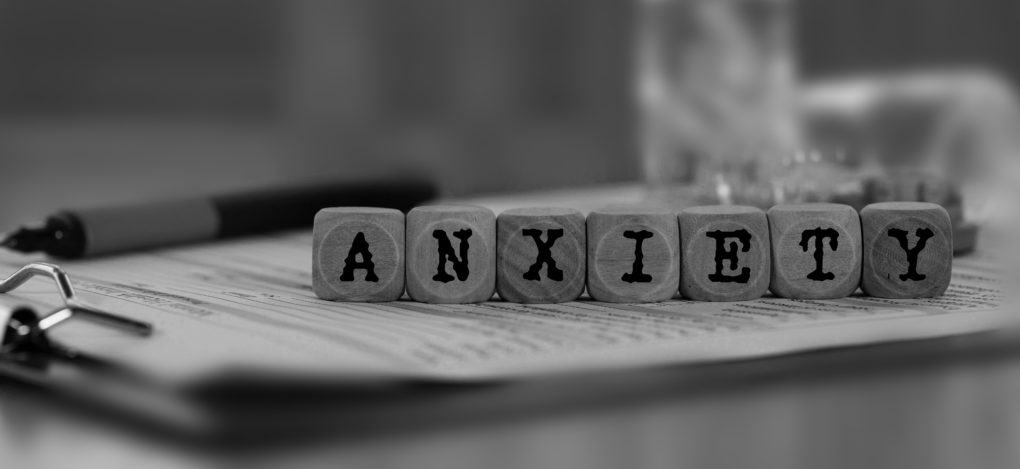
Top 10 Reasons Why Your Partner Doesn’t Desire You
Lack of sexual desire is often difficult to navigate or understand. There are multiple reasons why this happens and often it is not just one thing but a combination of factors that tend to be interrelated. I am providing simple things that you can do when intimacy is compromised in your relationship. The case examples are not representative of anyone in particular but of the issues I see in therapy.

The Way You Show Up Is Not Sexy
Colt reached out because his girlfriend didn’t want to have sex with him as much anymore. They had been together for 13 years. He has two children from his first marriage. Angel, his girlfriend, was actively involved in the caretaking of the children. When asked, what was going on, Angel stated that Colt was mean to her and never listened and that she was so tired of fighting and being talked to that way. I asked if this interfered with her sexual desire and she said that it was one of the main reasons she didn’t want to have sex anymore. She didn’t feel connected to Colt when he was mean or grumpy.
What to do? Show up in the way that you would show up if you were going on a first date with your partner. Women’s desire most often needs some inspiration to get going. People think they can show up smelly, in sweatpants, in a bad mood, and still get sex. Colt felt that even though he was mean to his partner, she should have to meet his needs. It’s different than the desire that is on all the time. Half the population (mostly women), need to have harmony, connection, flirting, and fun to want to be sexual. My advice would be to become aware that it is not your god given right to have sex. You aren’t entitled to it. You must work for it. Sometimes, I wish this was something we taught people before they enter into a relationship because when people don’t know that they will have to seduce their partner’s desire long term, it ends with resentment and a feeling of rejection.

Having Sex When You Don’t Want To
Margaret came to see me because her fiancé told her he was going to leave her if she didn’t get herself figured out sexually. He said that he wasn’t going to get married if they weren’t having sex. After some investigation, it turns out that Margaret, like many other women, was having sex to get her husband off her back or so he wouldn’t get upset. After hearing this, Toby, her husband, said that he doesn’t want her to have sex when she doesn’t want to be but that he has needs. Margaret didn’t know what to do because she was increasingly repulsed by sex.
What to do? Stop having sex when you don’t want to. The more you force yourself to have sex, the less sex you will want to have. Your husband can jerk off if he needs to. Everyone has sex that they don’t want to have to make their partner happy. But that only happens every once in a while. If it becomes routine, it ends in less desire. When you stop having sex you don’t want to have, you need to start giving yourself the time and the space to figure out what you want sexually.

Stress and Anxiety
Lydia was having difficulty wanting to have sex with her girlfriend. After some exploration, it was evident that Lydia was often anxious and in her head. She was constantly worrying about what she needed to do and whether or not it was good enough. The anxiety or worry preceded the relationship. It came from having a mother who would constantly criticize her. The only time she felt loved was when her mother was pleased with her success.
Women’s sexual desire tends to be responsive which means that it is affected by things like stress, exhaustion, anxiety, and too much to do and take care of. Sexual desire decreases for women after they set up house with their significant other. It is still a fact that most of the house and family management is taken over by females. When women are tired and stressed from all they have to take care of, they lose desire. It also requires them to have a running to-do list in their head. They spend a lot of time in their heads, worrying about what they need to do or how things could go wrong. All the thinking and stressing leave them living in their heads. When you are in your head, you can’t be in your body. Desire resides in the body, making it hard to access.
What to do: Begin a journey of getting out of your head and out of responsibilities that aren’t yours to own. Or if you are a man reading this, take on more of the responsibilities of the home, and give your partner some respite. And you may be saying, “But I do so much or I do it all.” Ask yourself whether you do what is asked or if you take on full responsibility for the issue at hand. For example, do you do the laundry when asked or do you take care of ordering the detergent, gathering all the clothes, getting your toddler a new sweater when her favorite sweater got stained, etc?
Sometimes, stress and anxiety have nothing to do with your relationship. If this is the case, you still need to get out of your head and into your body. There are many ways to do this and getting help is probably the most effective way to tackle it.

Conflict In The Relationship
Bev and Tony argued endlessly over sex. Both of them felt hurt by the other’s actions and words. This often happens in communication between people. It is hard to communicate well when you are hurt and on the defensive. Bev and Tony had to learn new ways to communicate. They also had to heal from the wounds that preceded their relationship. When your relationship is conflictual, responsive desire shuts down. Most women have responsive desire.
What to do: Figure out how to communicate in a way that doesn’t lead to conflict. Work on your wounding or pain points. If you fear being abandoned, for example, get to a place where you don’t feel like that anymore because the fear of abandonment will create conflict in the relationship. You will get triggered or reactive by things that resemble abandonment or that could result in abandonment.

Lack of Space
The main premise in the book “Mating in Captivity” is that desire needs space to flourish. Similar to a fire needing air. The pandemic sucked the air out of many relationships. Sharing space with your partner all the time is not sexy. You need space to see them from afar and have a feeling of awe for who they are or what they are doing.
What to do: Get more space, find an office, go out with friends, get a life.

Parent/Child Relationships
Mary felt that if she didn’t take care of things that needed to be done, Juan would never do it. Or if he did it, it wasn’t as well as she would. She couldn’t trust him in that way. Juan often felt like he couldn’t do anything right. Not only was Mary stressed out with so much to do, but she didn’t admire Juan for what he brought to the table. Juan often called Mary a nag because she was always trying to get him to do more. Juan didn’t take responsibility for the management of things but would wait until he was told what to do. The parent/child relationship between them led to a decrease in desire in Mary.
Many couples struggle when one of its members becomes the parental figure in the relationship. They manage, control, nag, organize, etc. They do this partly because it’s hard for them to have someone else do things as well as the inability of the other partner to be a functioning adult. Most people don’t want to have sex with their child or their parents. It just isn’t conducive to good sex.
What to do: Grow up and become an adult, Work on your control issues and your inability to trust that the other person will do what they need to do.

Need For Adventure And Diversity
Some desires abhor routine and need excitement. We can be shamed for needing excitement for arousal because people believe that a “normal” person should be okay with routine. Or that those who need excitement have something wrong with them. This is simply not the case. If your sexual desire needs excitement, there is nothing you can do about it except to give it what it needs. It is not your fault that your desire needs excitement. It’s the same as someone faulting you for liking chocolate cake instead of vanilla.
What to do: Find adventure and diversity within your home if you can’t or don’t want to explore the world. Simply having sex in a different part of the house can suffice at times. I have clients who go to a hotel or plan vacations just to be able to have sex.

Your Partner Doesn’t Really Desire You
Olga came in to ask whether she could learn to desire her husband sexually. She said he was a great life partner and a good father but she didn’t feel sexually attracted to him. She told me that she hadn’t felt the attraction at the beginning but thought it would develop over time. It didn’t.
This is the least common reason and there isn’t much you can do about it. I would be selling you short if I didn’t mention it. Most people don’t want to talk about the possibility that there may be no attraction. We can’t fix everything! It probably has been like that since the beginning. I haven’t found a way to help someone gain desire for someone when it isn’t there.
What to do: Find yourself someone who desires you.

Depression
Tod couldn’t understand why Anna didn’t want to have sex with him. He was a great partner, took care of himself, was nice to her, was functional, etc. But Anna was depressed and drank to numb the pain. They struggled for a long time trying to fix their relationship so that they could have more sex but it didn’t work. It didn’t work bc Anna was depressed and an addict. It was impossible to look at the sexual relationship until she worked on gaining some control over her depression and her drinking.
Sexual appetite can be affected by depression for many people. Depression takes our appetite away for many things including sex. Also, medication for depression can often lead to less sexual desire.
What to do: Find help to manage the depression.

Performance Anxiety
Tom’s desire had gone away after having numerous experiences with sexual performance. He hadn’t been able to become and stay erect for some time. The more he faced this issue, the less desire he had. Tom had to learn to change his expectations and values around sex to reduce the fear that he had.
Fear about what will happen in the bedroom can affect desire. It makes sense to me that if you are scared of something, you will stay away from it. Even though most men have a spontaneous desire (it’s always on and not affected by much), fear about performance is the only thing that reduces their desire.
Kids
Having kids is a great joy for many people but they kill sexual desire unless you have a lot of help and don’t feel tired, overstimulated, and over-touched. Most women go through a pretty intense process during and after giving birth. Their body feels like it has gone through a marathon. It is tired, it feels different. In addition, having to take care of a new human being 24/7 and having someone suck or touch your breasts every couple of hours, can take a toll. Many women need a breather to feel like themselves again. This breather can extend itself if the situation invalidates her process.
What to do: Find a way where she can rest and not be touched for long periods. Validate her reality.